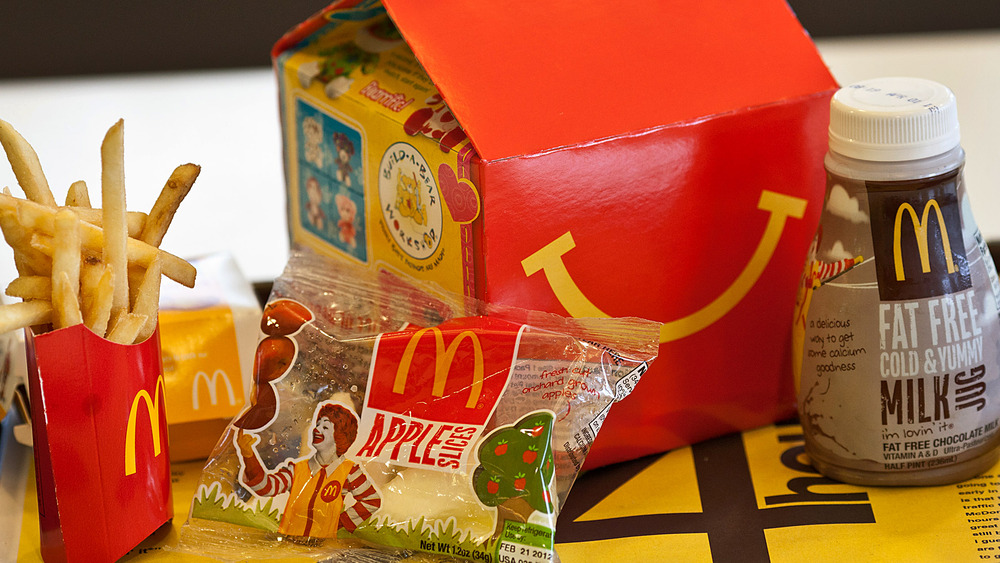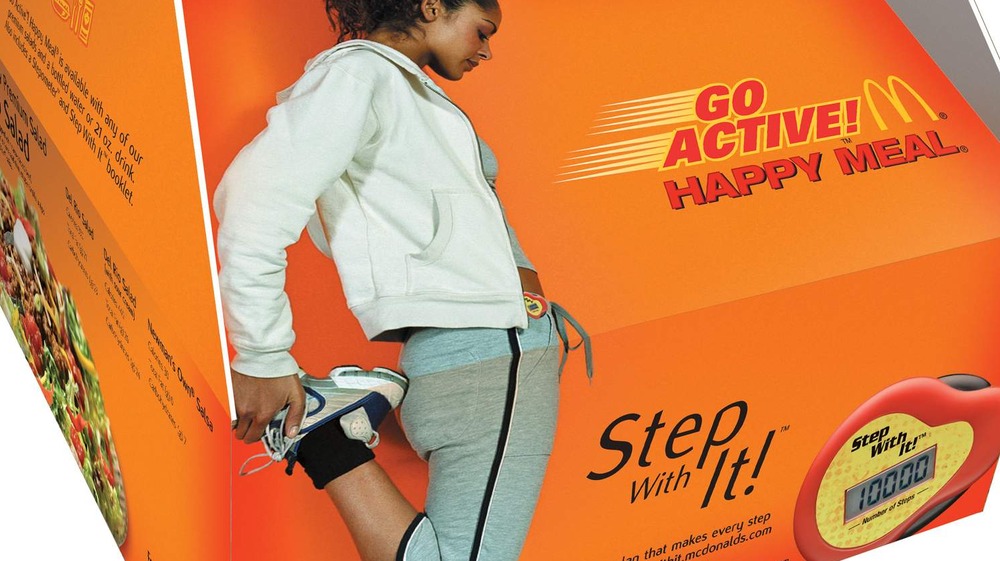The Startling Thing This Study Reveals About McDonald's Happy Meal Boxes
No need to scientifically prove what the Twitterverse already knows: like mac and cheese and chicken noodle soup, McDonald's Happy Meals are All-American comfort foods. Or, as one fan tweeted, "Happy meal from McDonald's to ease the pain." But where mac and cheese and chicken noodle soup don't always come in packaging, McDonald's Happy Meals do. Happy Meal boxes, and the toys inside of them, are such a big part of the product that they often go for hundreds of dollars on eBay. We're not judging, but somebody recently paid $500 for a Pokemon card out of a Mickey D's Happy Meal Box, according to Comic Book.
Buy a Happy Meal, and you're counting on more than food. But that's a real problem, according to a 2020 study conducted by a sociology professor at California State University, Los Angeles, Kristen Discola (who published under her previous last name, Hourigan). Discola began researching Happy Meal packaging after noticing that the messaging on Happy Meals she bought for her children was significantly different depending on the gender McDonald's was targeting. The differences were small, but, as Discola told Forbes, "That's the problem with these subtle differences; they slip by unnoticed."
Are McDonald's Happy Meals sexist?
Discola analyzed language on 56 Happy Meal boxes that McDonald's gave kids between 2011 and 2019. What she found is troubling. As per Discola, the language on McDonald's Happy Meal boxes targeted to girls included the "subtle, yet pervasive implication that girls are less active, less powerful, and in need of more detailed instruction and help, and they draw on a narrower set of skills as compared to boys." For example, girl-targeted Happy Meal boxes most often urged kids to "try" to do things. On the other hand, on boxes made for boys, McDonald's encouraged their customers to "aim high," "battle," "defeat," "compete," and "challenge" (via Forbes).
McDonald's responded to Discola's research by assuring Forbes that "we'll continue to explore ways to ensure Happy Meal promotions are inclusive and unbiased." But it's hard to separate the sexist language on its Happy Meals from a broader, at times misogynistic corporate context. Take the time when McDonald's UK compared women to food, advertising its fries as "tall blonde and gorgeous" (via The Telegraph). Or consider the multiple times in the past decade that McDonald's female employees in the United States have complained about sexual harassment at the workplace, complaints that often fall on deaf ears. In 2018, The Guardian quoted workers calling instances of such harassment "an epidemic." In 2020, attorney Eve Cervantez, representing McDonald's workers filing legal complaints after being harassed on the job, told The Nation, "It's not the case of one 'bad apple general manager.' It's a systemic problem."

